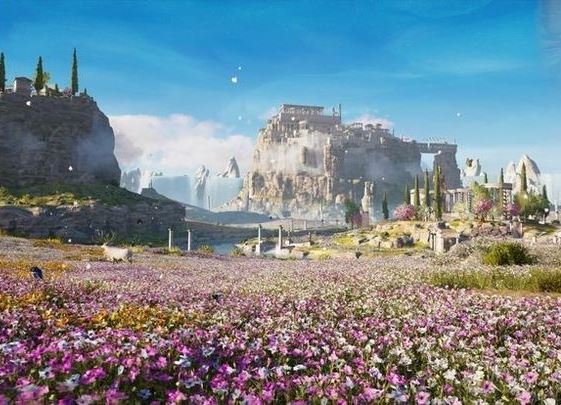Elysium (Elysion) — Mythic Realm

Elysium (Elysion) was the final resting place of the souls of heroes and virtuous men. The ancients often distinguished two Elysian realms--the islands of the Blessed and the Lethean fields of Haides.
The first of these--also known as the White Island or the Islands of the Blessed--was an afterlife realm reserved for the heroes of myth. It was an island paradise located in the far western stream of the river Okeanos (Oceanus) ruled by the Titan-King Kronos (Cronus) or Rhadamanthys, son of Zeus.
The second Elysium was an underworld realm separated from the gloom of Haides by the river Lethe. Its pleasant fields were promised as an afterlife to initiates of the Mysteries who had lived virtuous lives. The gods of the Mysteries associated with the passage to Elysium included Persephone, Iakkhos (Iacchus), Triptolemos, Hekate, Zagreus (the Orphic Dionysos), Melinoe (the Orphic Hekate) and Makaria.
When the concept of reincarnation gained currency in the classical world the two Elysian realms were sometimes tiered--a soul which had won passage three times to the netherworld Elysium would, with their fourth death, be transferred to the Islands of the Blessed to dwell with the heroes of myth for all eternity.
It should be noted that Elysium was an evolving concept. Homer knows of no such realm and consigns all of his heroes to the common house of Haides, while Hesiod and many other poets speak only of a paradisal realm exclusively reserved for the heroes. Roman writers such as Virgil combine the two Elysia--the realm of the virtuous dead and the realm of heroes being one and the same.
A few late Greek writers attempted to rationalise the myth and identified the mythical White Island with one located near the mouth of the river Danube on the Black Sea and the Islands of the Blessed with certain islands in the Atlantic Ocean.